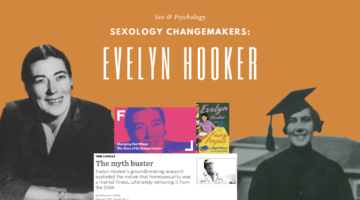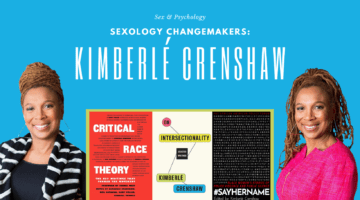Sex Surveys Pose No Harm To Student Participants
July 4, 2012 by Justin Lehmiller
Sex surveys have been controversial ever since the pioneering work of Alfred Kinsey in the 1940s and 50s. There has been a persistent concern that asking people questions about sex is simply too personal and is likely to make them feel distressed and uncomfortable. Although there may have been some validity to this concern several decades ago, times have changed. We now live in a world where people talk about sex more freely than ever before and sex is represented everywhere in the media. So should ethics review boards continue to scrutinize sex studies more than other types of research? A new study suggests not.
In this study, 504 college student participants were randomly assigned to complete one of two surveys. Half of the participants were given a survey that inquired about their own sexual attitudes and experiences, including traumatic events they have endured. The survey items they completed were deliberately chosen because they were thought to have the highest potential to cause distress. Thus, participants were asked hundreds of questions about topics such as rape, masturbation, childhood sexual abuse, body image, sexual history, and so forth. The other half of the participants completed a very general psychological survey, which included tests of vocabulary, abstract thinking, and analogies.
The results indicated that completing the sex survey did not increase reports of negative emotions among participants—in fact, negative emotions decreased among participants regardless of which survey they completed! Participants who completed the sex survey also reported feeling less mentally taxed and believed that they benefited more from having participated in the study than those who completed the cognitive tests. In addition, both surveys were rated as being less stressful than many normal, everyday stressors that everyone occasionally experiences (e.g., getting a paper cut, waiting in line, spilling your coffee, etc.).
The researchers also looked specifically at women who had a previous history of sexual victimization because there is a commonly held belief among ethics review boards that such women are especially susceptible to distress in research of this nature. However, women who were previously victimized did not report feeling any worse at the end of the study no matter which survey they completed.
This research indicates that sex surveys clearly fall in the category of minimal risk—that is, they are unlikely to cause more harm to someone than they might ordinarily experience in their everyday life or when completing other, more general psychological tests. Of course, there are some limitations of this study, given that all participants were undergraduate students from just one university in the United States. Further study with more diverse samples would thus be advisable before making sweeping recommendations. For now, however, it would at least appear reasonable to conclude that college students probably aren’t as sensitive about sex as ethics boards have made them out to be.
Want to learn more about Sex and Psychology? Click here for previous articles or follow the blog on Facebook (facebook.com/psychologyofsex), Twitter (@JustinLehmiller), or Reddit (reddit.com/r/psychologyofsex) to receive updates.
To read more about this research, see: Yeater, E., Miller, G., Rinehart, J., & Nason, E. (in press). Trauma and sex surveys meet minimal risk standards: Implications for institutional review boards. Psychological Science.
Image Source: iStockphoto.com
You Might Also Like:

Dr. Justin Lehmiller
Founder & Owner of Sex and PsychologyDr. Justin Lehmiller is a social psychologist and Research Fellow at The Kinsey Institute. He runs the Sex and Psychology blog and podcast and is author of the popular book Tell Me What You Want. Dr. Lehmiller is an award-winning educator, and a prolific researcher who has published more than 50 academic works.
Read full bio >


